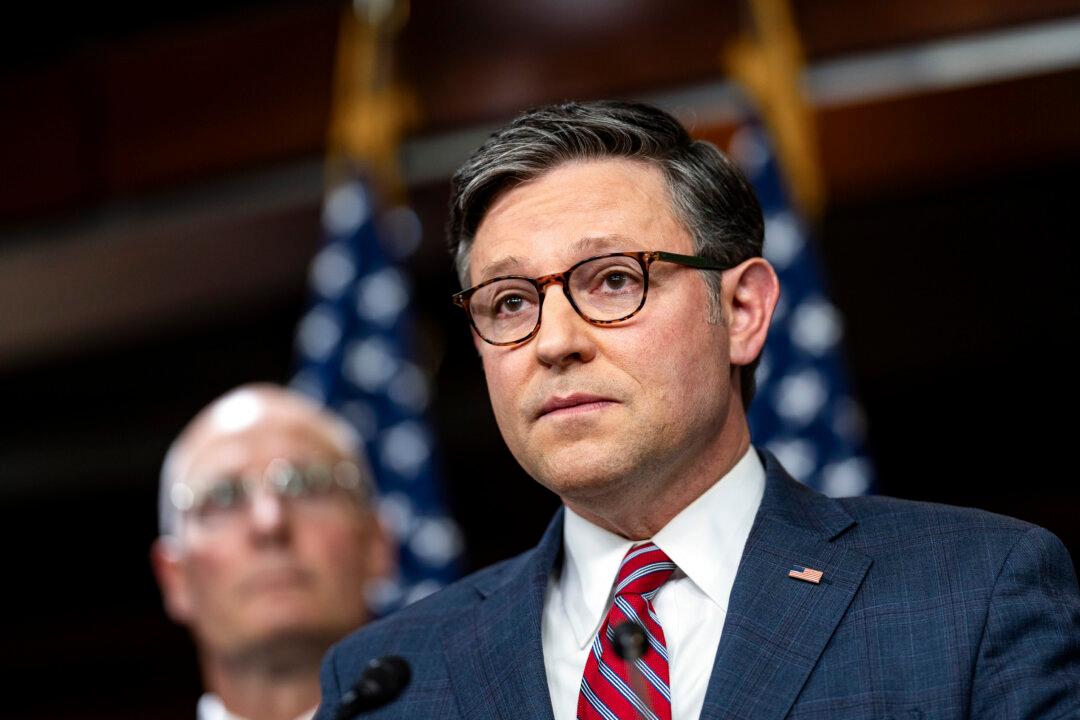House Speaker Mike Johnson (R-La.) says that in principle, he likes the version of the Kids Online Safety Act (KOSA) that was passed by the Senate this summer but that some specifics in the text are highly problematic, suggesting that a companion version of the bill in the House would need reworking to pass the lower chamber.
“I love the principle, but the details of that are very problematic,” Johnson told Punchbowl News in a brief interview published on Oct. 14, referring to the Senate-passed KOSA, which has faced criticism from some House Republicans for provisions that purportedly go too far in suppressing free speech.





